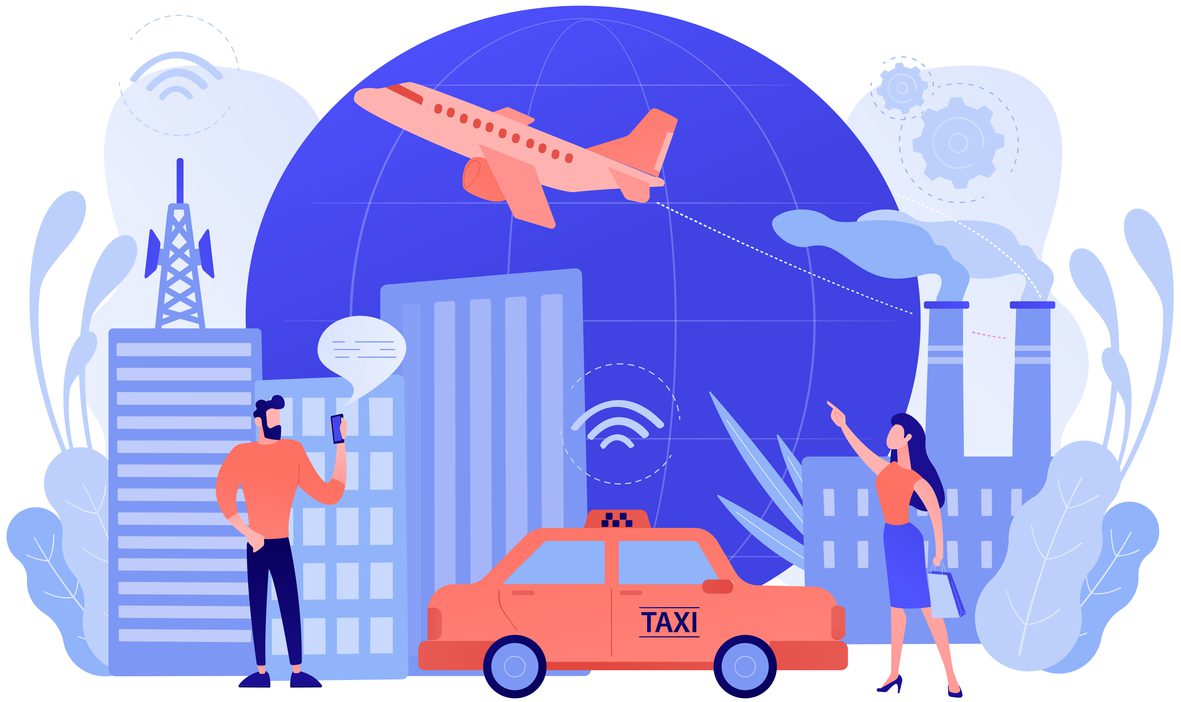The travel technology is rapidly developing, bringing benefits to tourists and businesses. There are chatbots, virtual reality headsets, and self-driving cars now, which were unthinkable in the past. These new advances have made traveling more individualized, immersive, and accessible for tourists. They have also helped businesses raise revenue, lower expenses, and decrease their carbon footprint. Nonetheless, implementing new travel technologies also poses some challenges, such as privacy and security issues, ethical considerations, and the digital divide. Despite these issues, welcoming new technologies can create a more sustainable and equitable future for travel while providing tourists with unforgettable experiences.
The use of technology to create new and innovative travel products
Travel technology is changing how we travel by creating new and innovative products. Here are some examples:
Virtual Reality:
Virtual Reality (VR) headsets allow travelers to explore any destination worldwide and experience the sights and sounds as if they were there. VR travel experiences allow travelers to learn about different cultures, visit historical sites, and explore new cities. Companies like YouVisit offer VR tours of popular sites like the Colosseum in Rome and the Grand Canyon.
Personalized Itineraries:
Artificial Intelligence, or AI-powered travel platforms can generate personalized travel itineraries that suit a traveler’s interests, budget, and time constraints. Google Trips, for instance, uses AI to create customized itineraries for travelers, including recommendations for things to do, places to eat, and how to get around.
Smart Hotels:
Smart hotels use technology to enhance the guest experience. AI-powered chatbots can answer guest queries and provide recommendations. Some hotels use sensors to adjust the temperature and lighting in guest rooms for a more comfortable stay. Hyatt has implemented smart technology features in its hotels, including smart thermostats, locks, and voice-activated controls.
Innovative Transportation:
Self-driving cars and flying taxis could revolutionize how we travel. Self-driving cars provide travelers with a more convenient and efficient way to get around while flying taxis make it possible to travel to remote destinations quickly and easily. Waymo is developing self-driving cars that could transport passengers in major cities, and Uber is developing a flying taxi service that could be launched within the next few years.
Sustainable Travel:
Technology can also be used to develop sustainable travel products. Companies are developing electric vehicles that can be used for transportation and tourism and solar-powered hotels and resorts. Tesla has produced a solar-powered van that can be used to travel off-grid.
Benefits of new travel products for travelers, businesses, and the environment
The travel industry has seen the emergence of new travel products with the rapid advancement of technology that offers a wide range of benefits to travelers, businesses, and the environment. These products are designed to provide travelers with personalized and immersive travel experiences, greater convenience, and enhanced efficiency. Additionally, they offer sustainable travel options that are eco-friendly and contribute to a healthier environment.
These travel products can also increase business revenue and profitability by attracting more customers and improving customer satisfaction. They also help businesses reduce their environmental impact by implementing more sustainable practices and reducing their carbon footprint.
Furthermore, the environmental benefits of these travel products cannot be overstated. They can help reduce greenhouse gas emissions, air pollution, and land use – major contributors to climate change. These products encourage responsible tourism and help preserve natural resources for future generations by promoting sustainable travel.
The future of technology in the travel and tourism industry
The travel industry is transforming significantly, thanks to the latest technological advancements. Artificial intelligence (AI) is already used to provide personalized travel recommendations and itinerary planning services. Booking and loyalty systems could be revolutionized by implementing blockchain technology, making the processes more secure, transparent, and decentralized. Moreover, the Metaverse, a virtual reality space, could provide immersive and interactive virtual travel experiences, giving travelers a taste of different destinations without leaving their homes. These technological advancements will undoubtedly pave the way for more innovative travel products and experiences in the future, enhancing the overall travel experience for people across the globe.
Challenges and opportunities
The utilization of technology in the travel industry poses both opportunities and challenges. Three primary issues must be addressed while discussing challenges. The first obstacle is ensuring privacy and security. Individuals are concerned about their personal information being gathered by technology companies, so travel companies are responsible for protecting their customers’ privacy and data. The second challenge is the ethical considerations of new travel technologies, like self-driving cars and flying taxis. For example, who will take responsibility for an accident involving a self-driving car? These inquiries must be answered before these technologies are implemented. The third challenge is the digital divide. Some individuals might need access to the technology required for new travel products and experiences, creating a gap between those who can and cannot use these technologies. It is vital that everyone can benefit from new travel technologies.
Introducing new travel technologies has also brought opportunities to the travel industry. Among these opportunities, there are opportunities for more jobs and economic growth. Technology can also create sustainable travel options, like electric vehicles for transportation and solar-powered hotels for less energy consumption. Furthermore, technology can make travel more accessible for people with disabilities and special needs, with AI-powered translation tools making communication more straightforward with people who speak different languages.
Final Thoughts
Technology is transforming the travel industry by creating new and innovative products that are immersive, personalized, sustainable, and accessible. Adopting technology like VR headsets, AI-powered chatbots, and blockchain-based marketplaces can revolutionize how we travel. While there are some challenges, like privacy and security concerns, ethical considerations, and the digital divide, the opportunities presented by technology are far-reaching. New travel products and experiences have the potential to boost the travel industry’s economy, create jobs, and reduce environmental impact. The rapid advancement of technology is expected to bring even more transformative changes to the travel industry.
